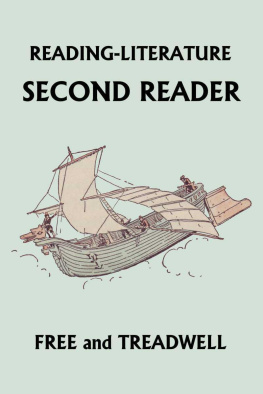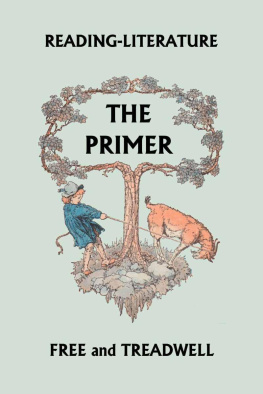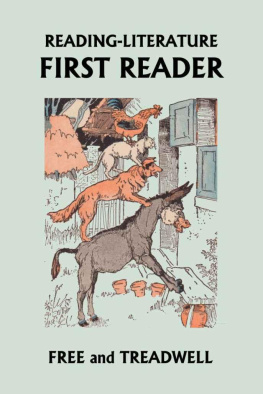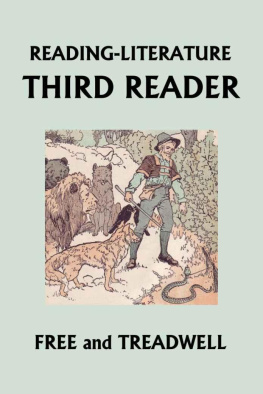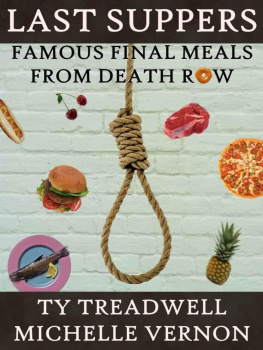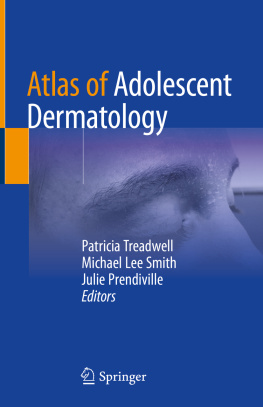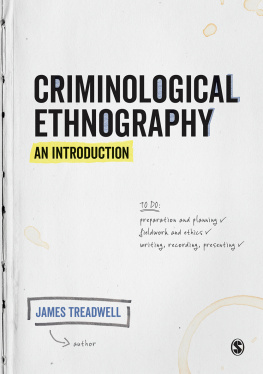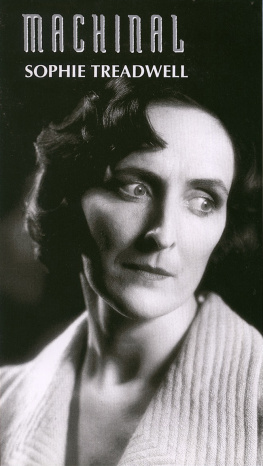Harriette Taylor Treadwell - Reading-Literature 3 Second Reader
Here you can read online Harriette Taylor Treadwell - Reading-Literature 3 Second Reader full text of the book (entire story) in english for free. Download pdf and epub, get meaning, cover and reviews about this ebook. year: 2008, publisher: Yesterdays Classics, genre: Art. Description of the work, (preface) as well as reviews are available. Best literature library LitArk.com created for fans of good reading and offers a wide selection of genres:
Romance novel
Science fiction
Adventure
Detective
Science
History
Home and family
Prose
Art
Politics
Computer
Non-fiction
Religion
Business
Children
Humor
Choose a favorite category and find really read worthwhile books. Enjoy immersion in the world of imagination, feel the emotions of the characters or learn something new for yourself, make an fascinating discovery.
- Book:Reading-Literature 3 Second Reader
- Author:
- Publisher:Yesterdays Classics
- Genre:
- Year:2008
- Rating:3 / 5
- Favourites:Add to favourites
- Your mark:
- 60
- 1
- 2
- 3
- 4
- 5
Reading-Literature 3 Second Reader: summary, description and annotation
We offer to read an annotation, description, summary or preface (depends on what the author of the book "Reading-Literature 3 Second Reader" wrote himself). If you haven't found the necessary information about the book — write in the comments, we will try to find it.
Harriette Taylor Treadwell: author's other books
Who wrote Reading-Literature 3 Second Reader? Find out the surname, the name of the author of the book and a list of all author's works by series.
Reading-Literature 3 Second Reader — read online for free the complete book (whole text) full work
Below is the text of the book, divided by pages. System saving the place of the last page read, allows you to conveniently read the book "Reading-Literature 3 Second Reader" online for free, without having to search again every time where you left off. Put a bookmark, and you can go to the page where you finished reading at any time.
Font size:
Interval:
Bookmark:
All rights reserved. No part of this book may be reproduced or retransmitted in any form or by any means without the written permission of the publisher.
This edition, first published in 2010 by Yesterday's Classics, an imprint of Yesterday's Classics, LLC, is an unabridged republication of the work originally published by Row, Peterson and Company in 1912. This title is available in a print edition (ISBN 978-1-59915-266-0).
Yesterday's Classics republishes classic books for children from the golden age of children's literature, the era from 1880 to 1920. Many of our titles are offered in high-quality paperback editions, with text cast in modern easy-to-read type for today's readers. The illustrations from the original volumes are included except in those few cases where the quality of the original images is too low to make their reproduction feasible. Unless specified otherwise, color illustrations in the original volumes are rendered in black and white in our print editions.
Those who have examined this book, together with the Primer and First Reader, should have no difficulty in apprehending the purpose of the series,to train children in reading and appreciating literature through reading literature.
The Primer contains nine of the best folk tales, true to the original, and yet written in such a simple style that children can begin reading the real story during the first week in school. The First Reader contains thirteen similar stories, of gradually increasing difficulty, and thirty-three of the best rhymes and jingles suitable for young children. This constitutes a course in literature, twenty-two stories and thirty-three child poems, as well adapted to first-grade children as are the selections for "college entrance requirements" to high-school students.
This Second Reader introduces fables and fairy stories and continues folk tales and simple poems.
Others have used some of the same material in readers, but in a quite different way. Their purpose seems to have been to "mix thoroughly." We have organized our material: a group of fables, several groups of folk and fairy stories, a group of Mother Goose, of Rossetti, of Stevenson, and so on; so that the child may get a body, not a mere bit, of one kind of material before passing to another. Thus from the first he is trained to associate related literature and to organize what he reads.
In each of the First and Second Readers one story is put into dramatic form to encourage presentation as a play. Some of the other stories are quite as dramatic in character, and can be dramatized by the pupils with very little help from the teacher. Pupils always enjoy this work, and there is no better way of securing feeling and freedom in oral expression.
With these books, besides merely learning to read, the child has the joy of reading the best in the language, and he is forming his taste for all subsequent reading. This development of taste should be recognized and encouraged. From time to time the children should be asked to choose what they would like to re-read as a class, or individuals who read well aloud may be asked to select something already studied to read to the others. This kind of work gives the teacher opportunity to find out what it is in a selection that the children like, and to commend what seems to her best.
The fact that some children voluntarily memorize a story or a poem should have hearty approval. It shows abiding interest and enjoyment, and it is likely to give, for the young child at least, the maximum of literary saturation.
The cordial thanks of the authors and publishers are tendered to Mr. James M. Barrie for permission to use the exquisite selection from "Peter Pan."
The Authors
T HE wind and the sun had a quarrel.
The wind said, "I am the stronger."
The sun said, "I am the stronger."
The wind said, "I can break trees. I move ships, and I bring the rain."
The sun said, "I bring the summer, I ripen the fruits and grains, and I cover the earth with flowers."
So they quarreled till they saw a man coming.
"Here comes a man with his cloak on," the wind said. "If you can take his cloak off, you shall be called the stronger. If I take it off, I shall be called the stronger."
"You begin," said the sun, and it went behind a cloud.
The wind began to blow. The man drew his cloak closer about him. The wind blew harder and harder. The man drew his cloak closer and closer. At last the wind had to give up.
Then the sun came from behind the cloud. It shone bright and warm. The man grew warmer and warmer. He unbuttoned his cloak. He threw it back. And then he took it off.

So the sun was called the stronger.
Aesop.
O NE day a crow was thirsty, and he looked for some water.
He found a pitcher with water in it. But he could not reach the water with his bill.
He tried to break the pitcher, but he could not.
Then he tried to turn it over. But he had to give that up, too.
He saw some pebbles on the ground. He picked up one pebble and dropped it into the pitcher. The water rose in the pitcher. Then he dropped in another pebble. The water rose higher. Then he dropped another and another. The water rose higher and higher.
At last he could reach it, and he drank all the water he wanted.
Where there is a will there is a way.
Aesop.
O NCE a crow was sitting on a branch of a tree with a piece of cheese in her mouth.
A fox saw the crow with the cheese. He walked up to the foot of the tree and said, "Good-morning, Madam Crow. How well you look. Your feathers are glossy and your eyes are bright. You are a beautiful bird. I know you have a sweet voice. Will you sing for me? I would love to hear you sing."
The crow lifted her head and began to "caw." When she opened her mouth, the cheese fell to the ground.
"That will do," said the fox, and he snapped up the cheese and ran away.
"How foolish I was," said the crow, "to let him flatter me."
Aesop.
T HERE was a man who had a very fine goose. Every day she laid an egg of gold. The man soon became rich.
As he grew rich, he grew greedy. "The goose must be gold inside," he thought to himself. "I will open her and get all the gold at once."
So he killed the goose, but he found no gold. Then the man wrung his hands and said, "I wish I had been content with the golden egg each day."

Aesop.
"I WAS never beaten in a race," said a hare. "No one else can run as fast as I."
Font size:
Interval:
Bookmark:
Similar books «Reading-Literature 3 Second Reader»
Look at similar books to Reading-Literature 3 Second Reader. We have selected literature similar in name and meaning in the hope of providing readers with more options to find new, interesting, not yet read works.
Discussion, reviews of the book Reading-Literature 3 Second Reader and just readers' own opinions. Leave your comments, write what you think about the work, its meaning or the main characters. Specify what exactly you liked and what you didn't like, and why you think so.

